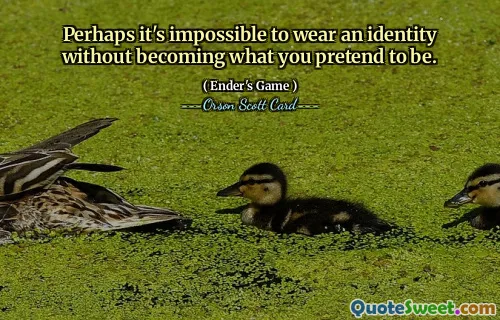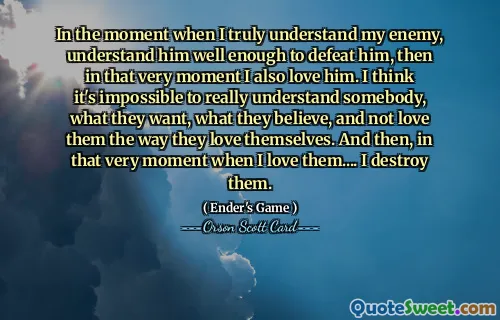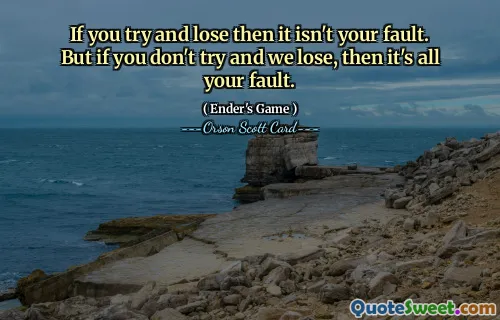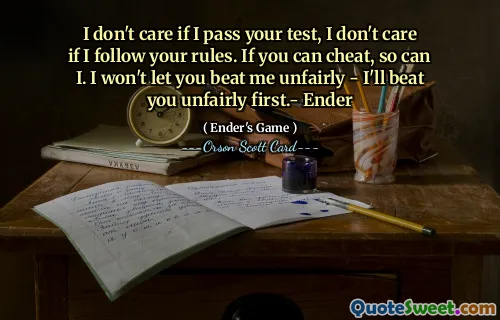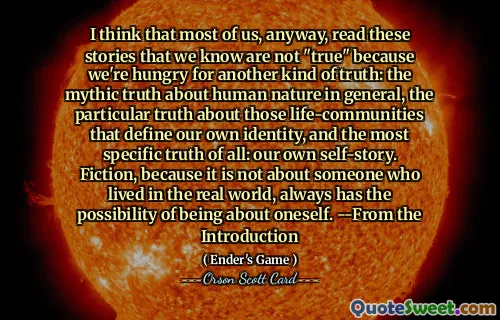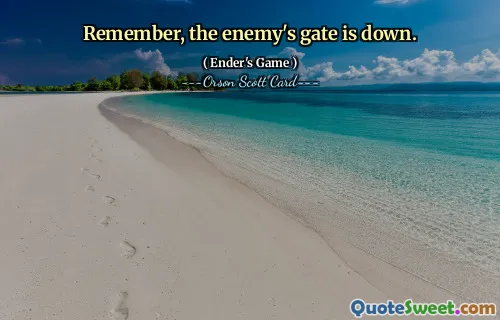
I'm crazy," said Ender. "But I think I'm OK.
In "Ender's Game" by Orson Scott Card, the protagonist, Ender Wiggin, grapples with his sense of identity and the moral implications of his actions. While he acknowledges his unconventional thoughts, he also believes he is ultimately sound in his judgment. This internal conflict reflects the pressures and expectations placed upon him as a gifted child destined to lead in a war against an alien species. Ender's journey reveals his struggle to balance his innate capabilities with the expectations of society and the military. He becomes a symbol of the burdens that come with greatness, as well as the complexities of leadership and sacrifice in a conflict-driven world.
"I'm crazy," said Ender. "But I think I'm OK."
This quote encapsulates Ender's internal conflict, showcasing his self-awareness and acceptance of his unique perspective. He recognizes his madness, which stems from the extraordinary circumstances in which he finds himself, yet he maintains a sense of reassurance about his own morality and decision-making.
